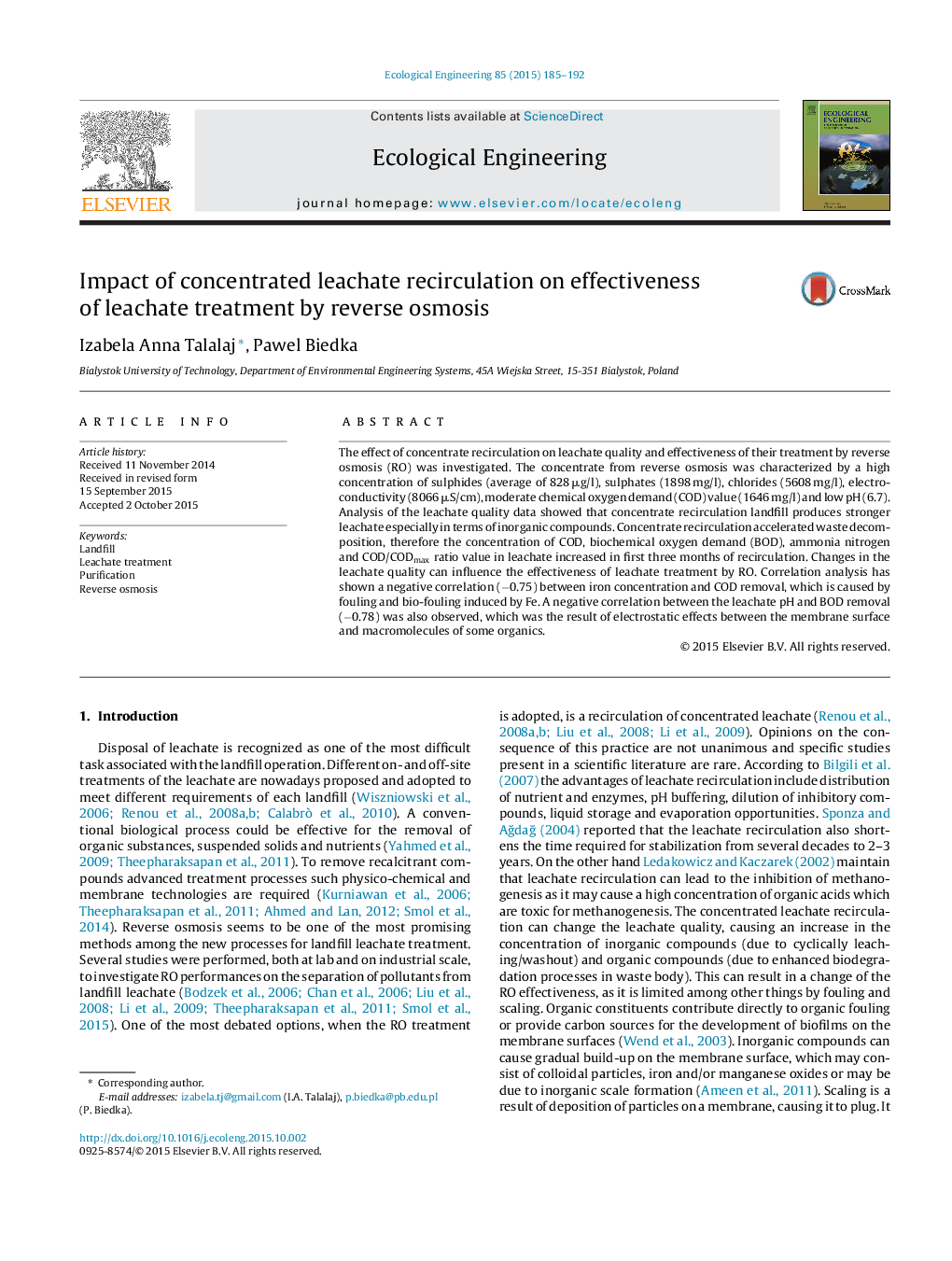| Article ID | Journal | Published Year | Pages | File Type |
|---|---|---|---|---|
| 6301605 | Ecological Engineering | 2015 | 8 Pages |
Abstract
The effect of concentrate recirculation on leachate quality and effectiveness of their treatment by reverse osmosis (RO) was investigated. The concentrate from reverse osmosis was characterized by a high concentration of sulphides (average of 828 μg/l), sulphates (1898 mg/l), chlorides (5608 mg/l), electro-conductivity (8066 μS/cm), moderate chemical oxygen demand (COD) value (1646 mg/l) and low pH (6.7). Analysis of the leachate quality data showed that concentrate recirculation landfill produces stronger leachate especially in terms of inorganic compounds. Concentrate recirculation accelerated waste decomposition, therefore the concentration of COD, biochemical oxygen demand (BOD), ammonia nitrogen and COD/CODmax ratio value in leachate increased in first three months of recirculation. Changes in the leachate quality can influence the effectiveness of leachate treatment by RO. Correlation analysis has shown a negative correlation (â0.75) between iron concentration and COD removal, which is caused by fouling and bio-fouling induced by Fe. A negative correlation between the leachate pH and BOD removal (â0.78) was also observed, which was the result of electrostatic effects between the membrane surface and macromolecules of some organics.
Related Topics
Life Sciences
Agricultural and Biological Sciences
Ecology, Evolution, Behavior and Systematics
Authors
Izabela Anna Talalaj, Pawel Biedka,
